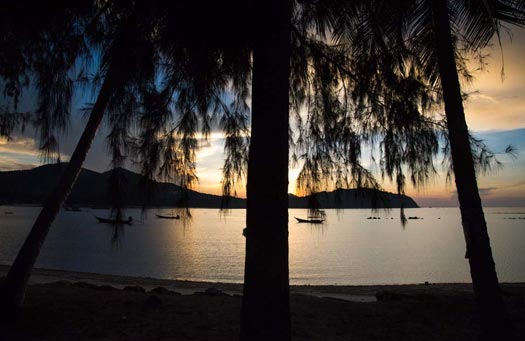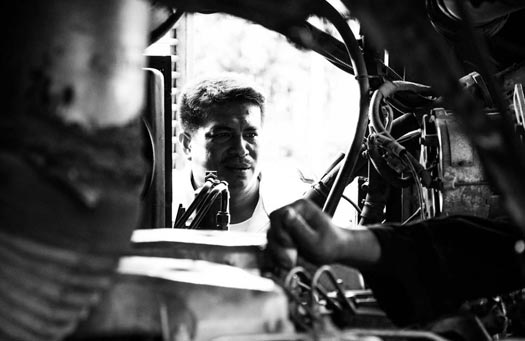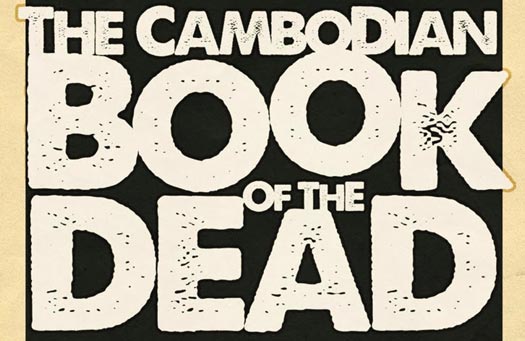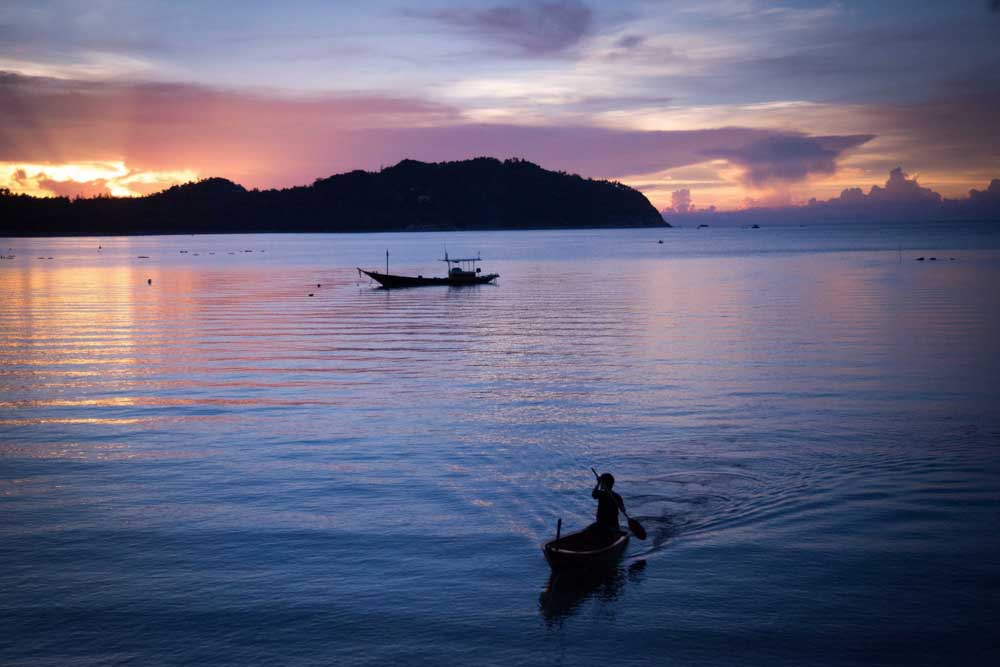 I DON’T REMEMBER exactly when I gave up on Koh Pha-ngan in Thailand but I’ll never forget the night I accidentally arrived there on a full moon and found myself sucked into the maw of a surging crowd of board-shorts and bikinis that disgorged me at Haad Rin, scene of the legendary Full Moon Party.
I DON’T REMEMBER exactly when I gave up on Koh Pha-ngan in Thailand but I’ll never forget the night I accidentally arrived there on a full moon and found myself sucked into the maw of a surging crowd of board-shorts and bikinis that disgorged me at Haad Rin, scene of the legendary Full Moon Party.
It’s little talked about, but it is in fact possible to accidentally go to a full-moon party. You’re working in the city—or you’ve given up on finding a job in one—and you fly (or bus, or train) to the south of Thailand having completely forgotten that the moon even exists. And that’s when you realize it does—big time—and its plenitude is occasion for a bacchanalian orgy of buckets and pills, mushroom shakes, dodgy uppers and downers—think Valium and weight-loss pills washed down with Red Bull—ill-considered casual sex and banging techno
… If you’re lucky.
Like I said, I forget precisely when this badly timed trip of mine occurred—1996 or 1997, probably—but that night, batting mosquitos from my ears, tossing and turning on the floor of a restaurant surrounded by copulating strangers, cured me of a love affair with the islands of southern Thailand that was first ignited on Samui in 1985.
I’d never even heard of a full-moon party before Samui. But in 1985 I ate magic mushroom omelets for dinner. I spoke personally with God. There were 25 of us. In contrast, by the time I went to my last full-moon party, accidentally, in the mid-90s, there were upwards of 10,000 of us—and God had everybody on hold.
Up the wormhole to 2013, and I now know I was too quick to judge—off-season, at least. In a way, the full-moon parties may have saved Koh Pha-ngan from the horrifying deprivations visited on neighboring Koh Samui and Koh Tao—now both ugly, ugly, as DH Lawrence might say. The party beach, Haad Rin, effectively corrals the worst of the traveler invasion on a 1-km stretch of decrepit tourist infrastructure and dirty sand, leaving the rest of the island surprisingly under-developed, and divided between those who think Koh Pha-ngan has missed the boat and is due a money-making invasion, and those who pray the miraculous will happen: nothing.
Forget all that. I’ve spent the last few days at Chaloklum Bay, a fishing village that reminds me of Dali (Yunnan Province, China), where I spent a couple of years “researching” a novel. Chaloklum is permanently on “idle”. Like Dali, there are probably far more foreigners living here in houses scattered on the jungly hills that sweat and slumber above the village than is obvious on any given somnolent afternoon on the main strip, but that’s no bad thing.
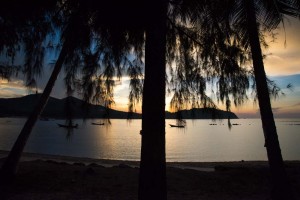 Put aside high expectations. Chaloklum is a bay with some fishing boats. Storms roll in from time to time. A handful of bars and restaurants open and close at the whim of torpid, tropical moods. At its languid best, it’s a miracle.
Put aside high expectations. Chaloklum is a bay with some fishing boats. Storms roll in from time to time. A handful of bars and restaurants open and close at the whim of torpid, tropical moods. At its languid best, it’s a miracle.
I’ve spent my evenings in The Lost Dog, a big space with a beachside deck, solid home-away-from home food, locals who know not to ask you where you’re from or how long you’ve been traveling, and at Zhaba, a Russian-run establishment that might be the most splendid beachside bar I’ve ever seen in my life.
Depending on whom you speak to, the legendary Omega Bar is not so much closed as in a state of hibernation, or shuttered in quiet indie protest against the indignities of possible small-time success. Nobody could quite explain to me what happened.
“All things come to an end, and it’s better to bring it to an end than wait for it to happen,” Chaloklum resident (and, in the spirit of full disclosure, long-time friend) Ben Owen-Browne told me philosophically.
In the meantime, drinks are still being served and the barkeep was less convinced it was all over.
Visit before it is.
Harvest Season, a novel, is now available in print and digital formats. And in the UK too: print, digital. And wherever else you are in the world through your local Amazon.
